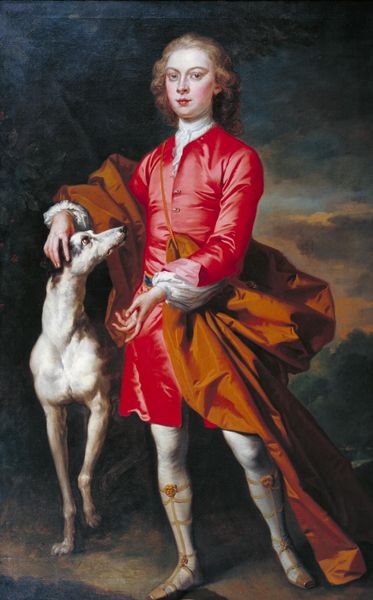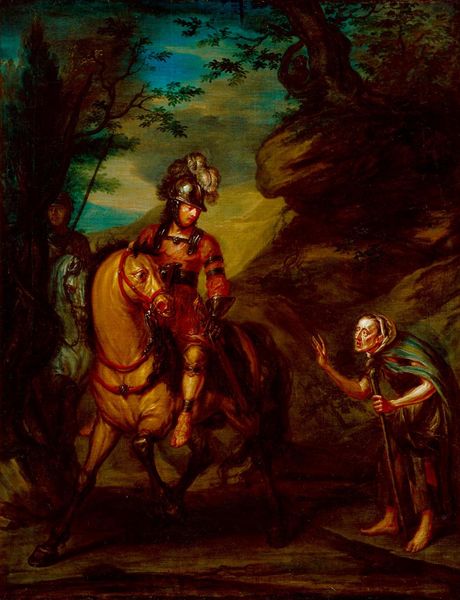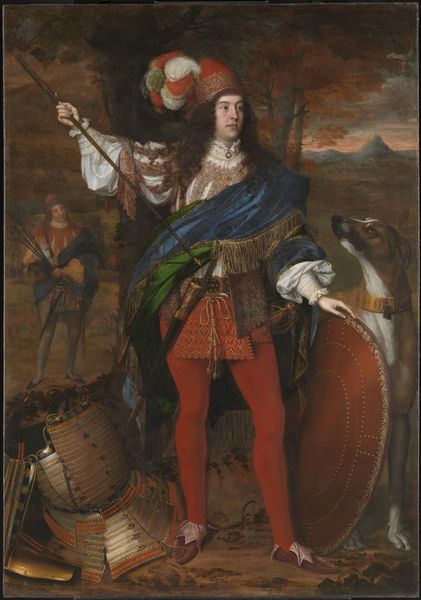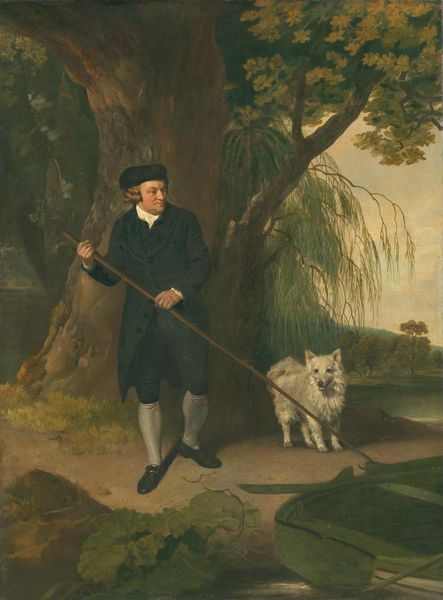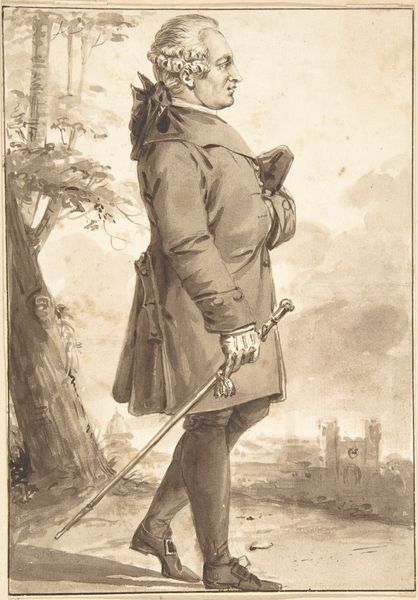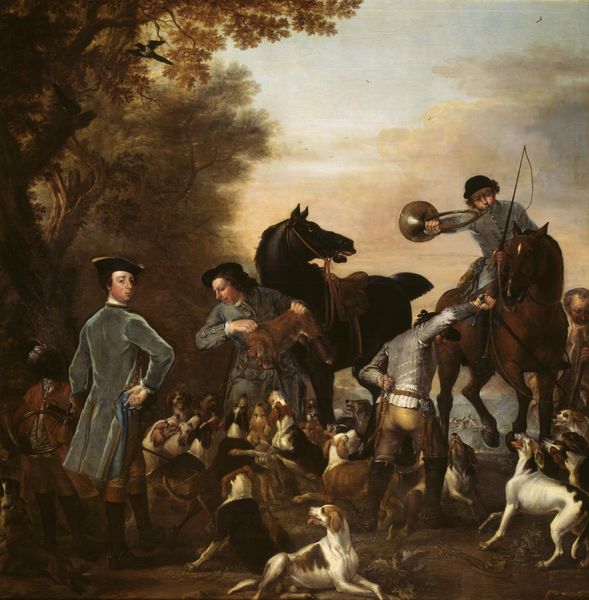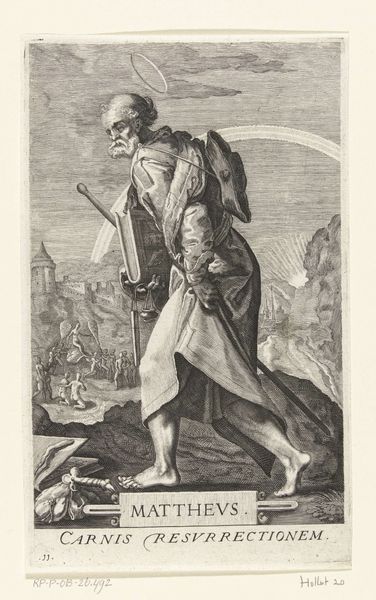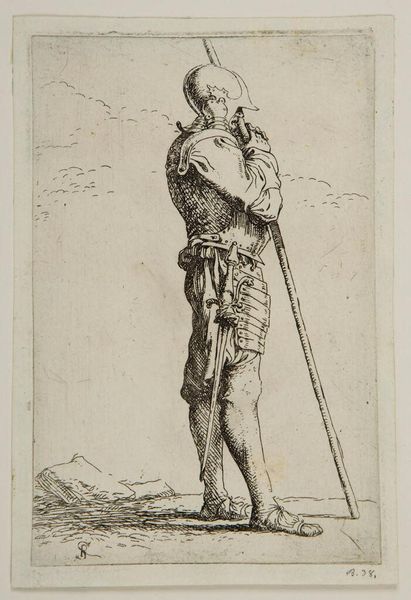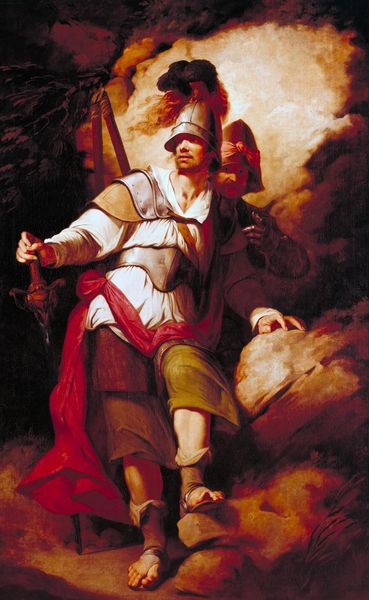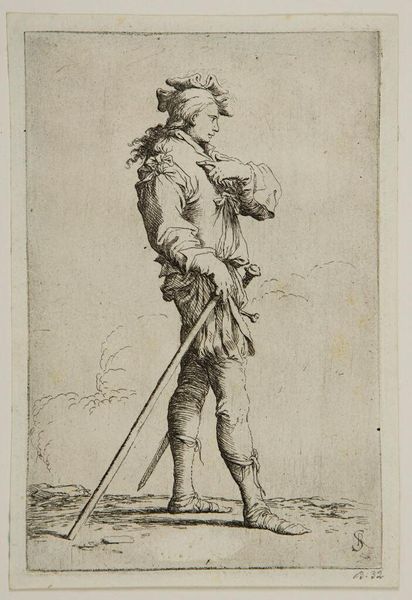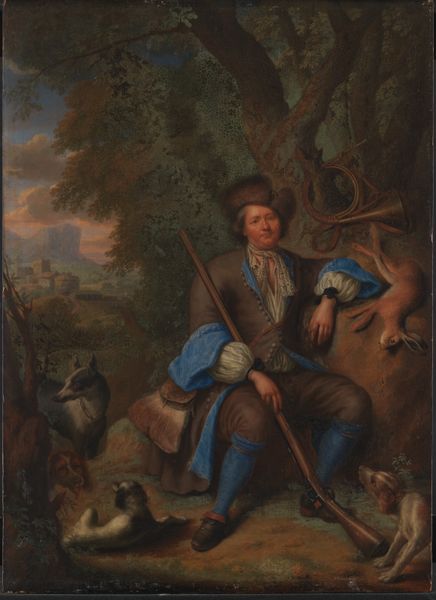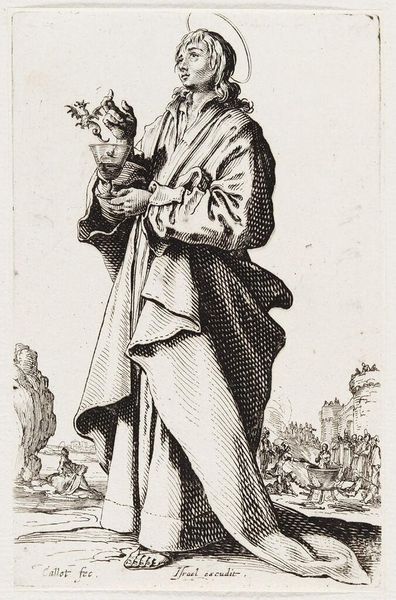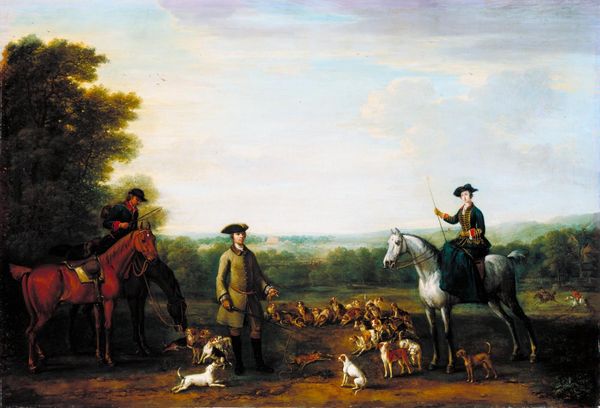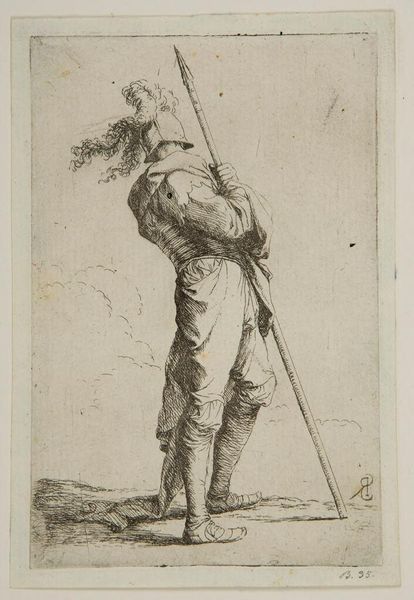
painting, oil-paint
#
portrait
#
baroque
#
painting
#
oil-paint
#
landscape
#
figuration
#
oil painting
#
history-painting
Dimensions: 126 x 191 cm
Copyright: Public domain
Editor: So, here we have Diego Velázquez's "Philip IV King of Spain," painted in 1633. It's an oil painting currently housed at the Museo del Prado. Initially, I see this portrait as very much about presenting royal power, but the muted colors and the king's somewhat melancholic gaze suggest a more complex reading. How do you interpret this work? Curator: For me, the power of this portrait lies not in idealized majesty, but in the very materials and process that went into its making. Consider the oil paint itself, ground pigments suspended in oil – substances extracted through labor. How does the texture, the brushstrokes visible on the canvas, speak to the socio-economic context of its production? Editor: That's a fascinating perspective! I hadn't thought about it in terms of labor, only in terms of artistic skill. So, you're suggesting the material composition hints at the social structure that enables its creation? Curator: Precisely. Think about who would have commissioned and purchased pigments during this period, the training required to produce the work. And further, the King's clothing isn't overly opulent, suggesting that it’s less about ostentatious display, more about emphasizing the Bourbon’s position. Does that material choice alter your view on that supposed melancholic gaze? Editor: It does. The muted clothing draws my attention to his face, becoming a more prominent part of the composition. Focusing on materiality highlights a specific approach to portraying royalty during this time. Curator: And what about the dog? Is the breed important or purely coincidental in its presence within this picture, and do you think that affects its perceived value? Editor: I hadn’t really considered the dog. Viewing it alongside this information changes how I perceive both this portrait and portraiture in general. Curator: It certainly offers a richer lens, doesn't it? Thinking about art as more than just an image, and focusing instead on the historical, social, and material elements is more insightful.
Comments
No comments
Be the first to comment and join the conversation on the ultimate creative platform.
